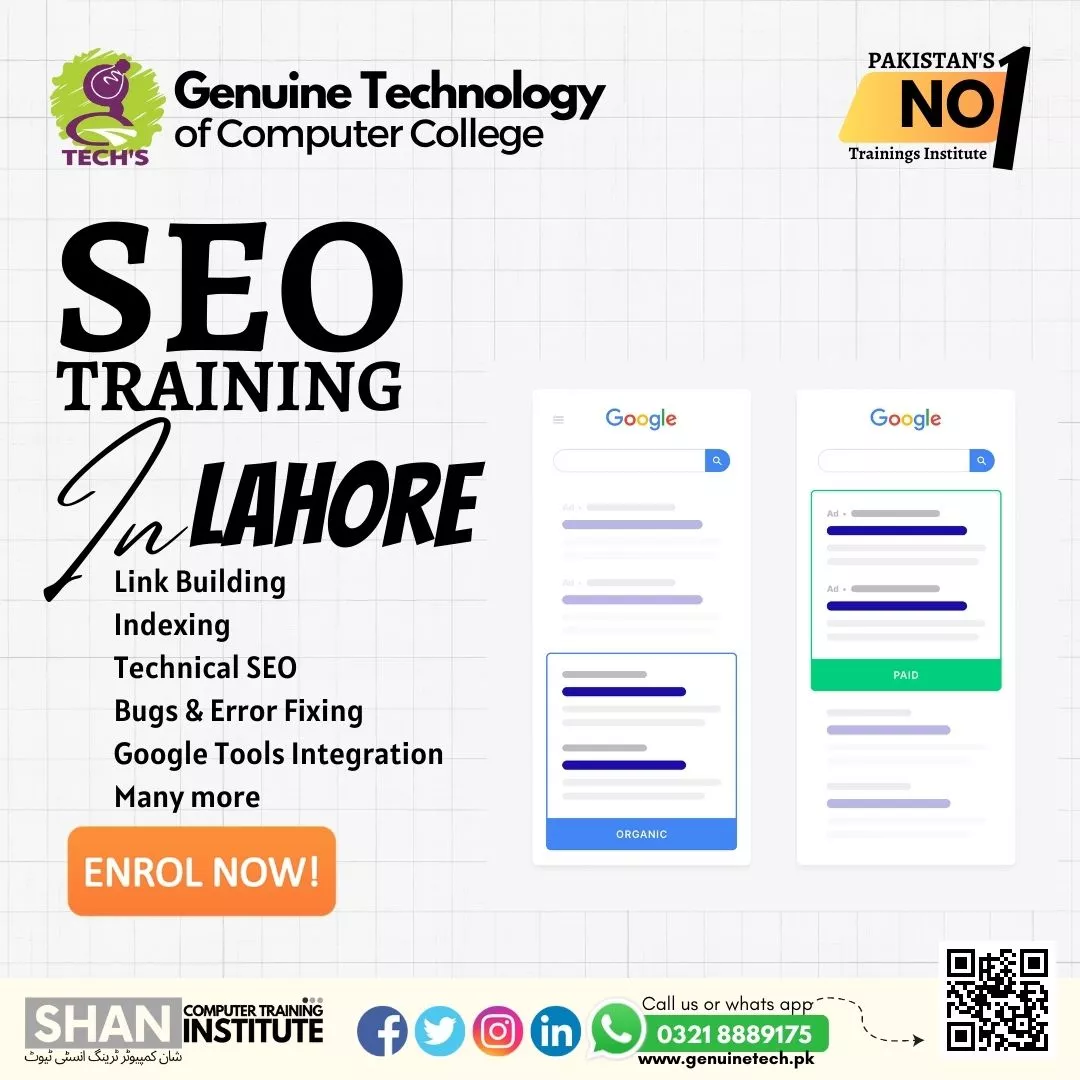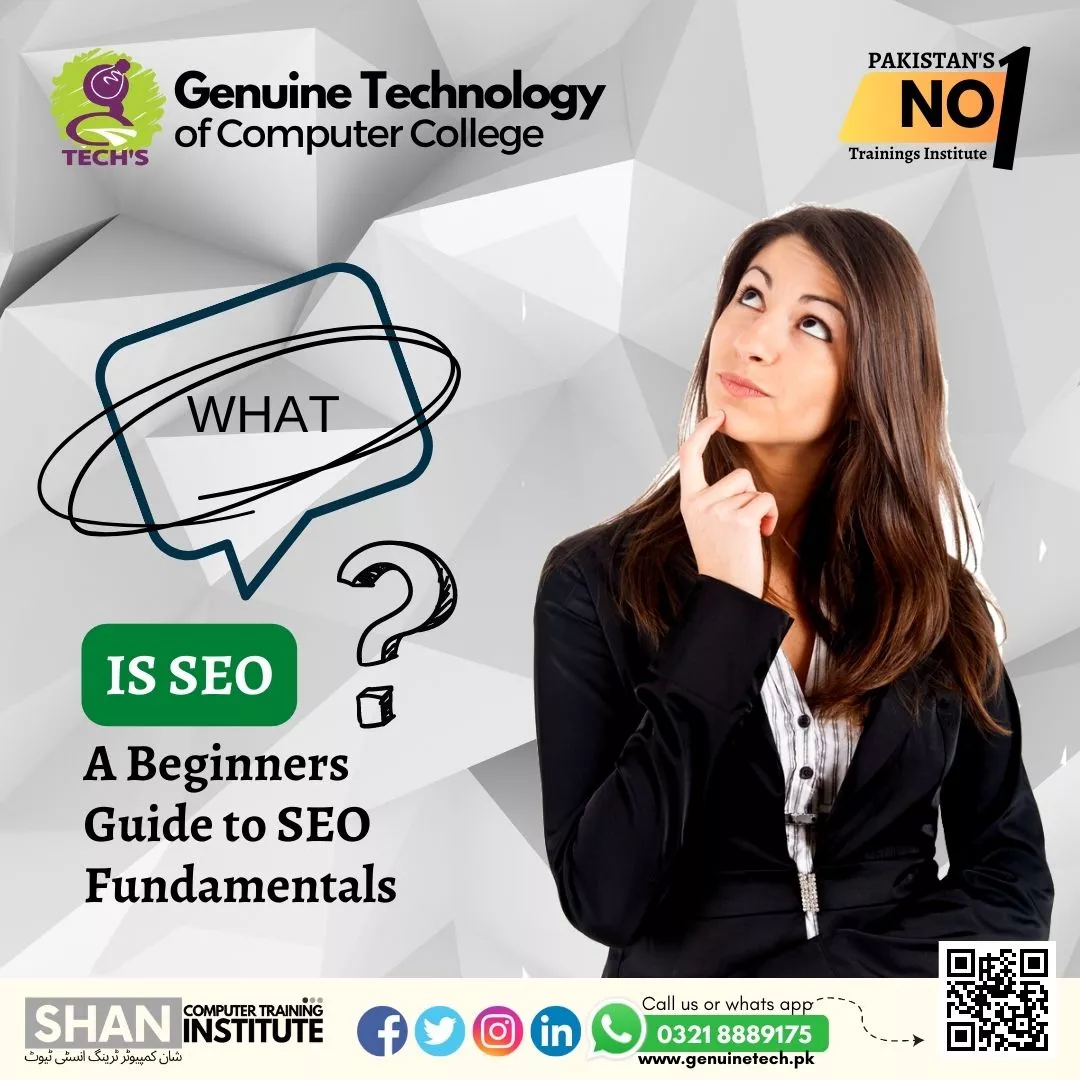The College > Blog > What is SEO - A Beginners Guide to SEO Fundamentals
What is SEO - A Beginners Guide to SEO Fundamentals
What is SEO and why is it important SEO basics? - Shan
A beginner guide to SEO fundamentals learn the best SEO training course in Lahore and become a seo expert in this seo training you can learn to mastering on-page and off-page optimization techniques which may help you to rank your websites and businesses to new heights on search engine result pages and you can automatically attract more customers towards your services, brand or product which may result in more sales so you can grow your business online with this seo expert course you can unlock many opportunities for your businesses and become a seo master.
Ultimate Guide to Mastering On-Page and Off-Page SEO Techniques
Genuine tech is the best Computer Training Institute in Pakistan for their SEO expert training courses, full stack development courses and digital media marketing course which is high in demand and upon the completion of these best computer courses you can easily earn money online through internet without any investment. We may provide the ultimate guide to mastering On-page and Off-page techniques in seo optimization through which you can improve your website performance and rank it on top pages of search engine this is a seo master course in which you can enroll as a beginner or a professional to enhance your knowledge and skills.
In this seo expert training course you can learn the best seo optimization techniques which may help in optimizing your website this seo expert course after FA is the best choice for the candidates to enhance their skills along with this students can learn web development courses and digital media marketing so they can easily earn money online by working at their homes. In Genuine Tech the No1 IT Training Institute you can learn freelancing course with this seo training to become independent and secure your future by earning a lot of money.
To get more info visit highervisibility.com about search engine optimization.







